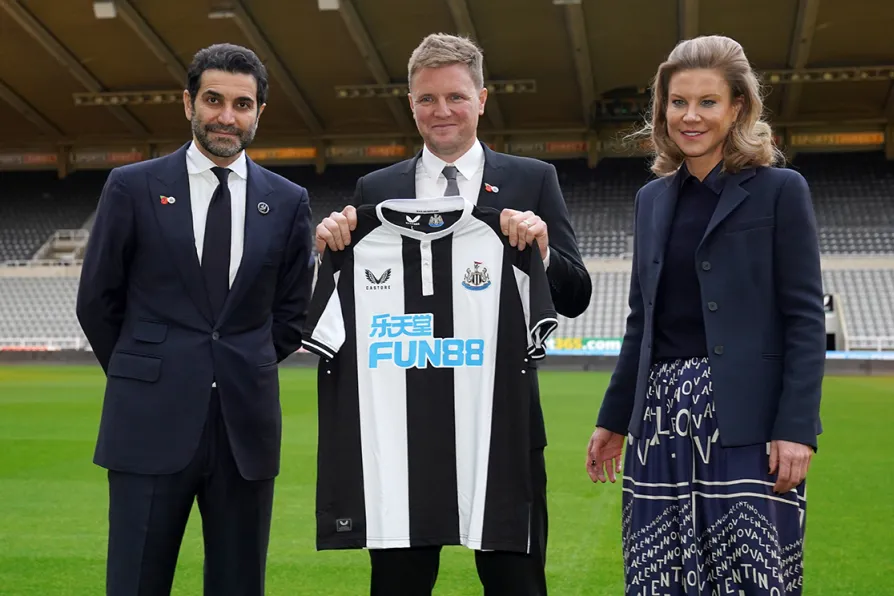
 Club director Amanda Staveley and husband Mehrdad Ghodoussi (left) with then newly-appointed Newcastle United manager Eddie Howe, November 2021
Club director Amanda Staveley and husband Mehrdad Ghodoussi (left) with then newly-appointed Newcastle United manager Eddie Howe, November 2021
THE Saudi Professional League (SPL) is causing a stir in football this summer, throwing its money around in a bid to attract more of the game’s global stars to the league.
The surge of spending, on wages even if not on transfer fees, comes on the back of four of the league’s biggest clubs being bought out by the country’s sovereign wealth fund, the Public Investment Fund (PIF), which is also the majority owner at Newcastle United.
Earlier this month, PIF announced 75 per cent ownership in Saudi clubs al-Ittihad, al-Ahli, al-Nassr and al-Hilal, as part of the country’s Sports Clubs Investment and Privatisation Project.

With climate change, commercial overload and endless fixtures, footballers are being pushed to breaking point. It’s time their unions became a more powerful, unified force, writes JAMES NALTON

Joao Pedro’s emotional goals against Fluminense captured the magic of an international club competition. But even as fans bring colour and passion, the Club World Cup’s deeper issues loom large, writes JAMES NALTON












